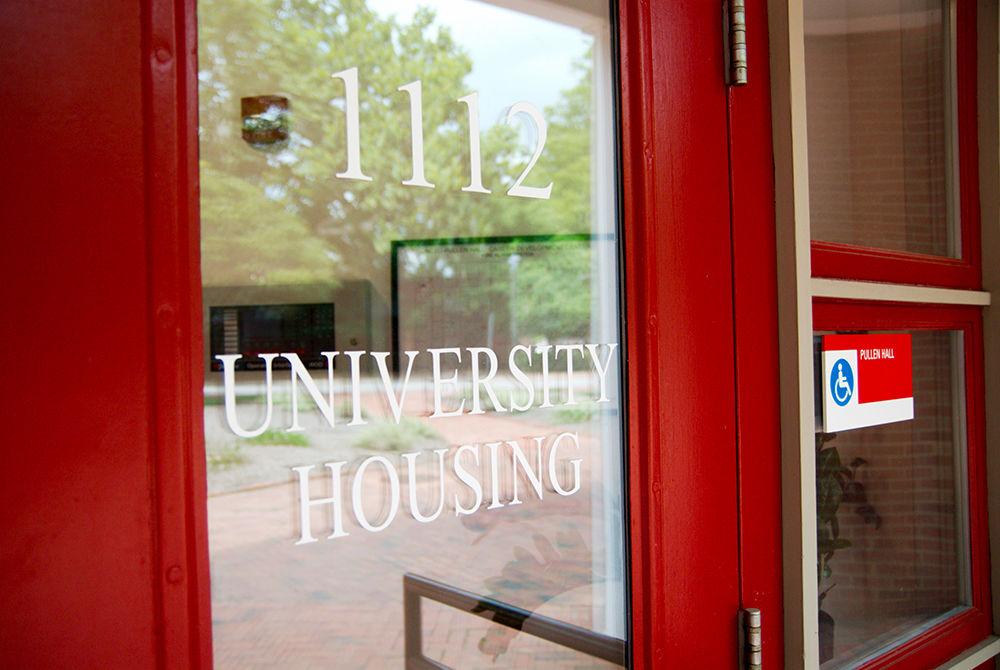University Housing and the GLBT Center work to provide students with adequate housing on NC State University’s campus, but under UNC System Housing Policy 700.8.1, many transgender students are unable to receive gender-inclusive housing.
According to the GLBT Center’s director, Renee Wells, after Duke University implemented gender-inclusive housing in 2012, UNC-Chapel Hill followed suit. In 2013, the UNC Board of Governors responded by implementing a system-wide housing policy 700.8.1 prohibiting gender-neutral housing options outside of special circumstances. Such circumstances for people of different genders include siblings, parents and their children and legally married people, and the policy requires students in University Housing to be assigned to rooms by sex assigned at birth.
“The policy requires that we have students in accordance with their sex assigned at birth,” Wells said. “Which means that if you have a transgender female student assigned male at birth who wants to be in a female-identified living space, by the policy, we are required to house them with someone who also has a male-assigned gender marker on their birth certificate.”
There is no current record of the number of transgender students affected by the UNC System housing policy, given that transgender students are not required to disclose their status on their housing application, according to the director of University Housing, Susan Grant. While the policy is definite in its restrictions on gender-inclusive housing, Wells and her colleagues at the GLBT Center work with transgender students to find opportunities in which transgender students can legally room in gender-affirming environments.
“It’s very difficult to find a roommate for trans students without violating the UNC policy,” Wells said. “In the past, we have paired up some trans students. That is a rarity, except when factors align for folks who are searching for rooms at the same time … But more often than not, students get roomed by themselves.”
Grant collaborates with various on-campus centers, including the GLBT Center, to ensure that students have accommodating housing situations while on campus.
“Students need a place where they feel comfortable,” Grant said. “We try our best within the state that we live in to uphold state law while doing the best we can to develop our residents.”
Before the UNC System implemented Housing Policy 700.8.1 in 2013, University Housing had been in conversation with the GLBT Center regarding implementing gender-inclusive housing on NC State’s campus, according to Grant. Nevertheless, given that incorporating gender-inclusive housing options would be against system policy now, Grant says that the university must abide by the UNC System’s guidelines. This year, Grant has partnered with Andy DeRoin, the GLBT Center’s program coordinator, as co-principal investigators in a study of gender-inclusive housing implementations at various college campuses as well as transgender students’ experiences within University Housing at NC State.
“We are part of a team to find out what other universities are doing to satisfy the needs of transgender students,” Grant said. “And we, University Housing, had a list of peer institutions that we called to ask a series of questions so that we could have a better understanding of if our peer institutions have been able to honor gender-inclusive housing.”
For Wells, the UNC System housing policy diminishes NC State’s reputation as a welcoming, diverse and inclusive college campus.
“We are in many ways non-competitive in comparison to other institutions because we do not and cannot have this option for students,” Wells said. “In many ways, I think that it is interesting to think about what message we are sending to trans students and the options that we give them with relation to housing.”
According to Wells, the predominant interpretation surrounding gender-inclusive housing in the UNC System is that it would constitute a violation of privacy, an interpretation which she says will most likely remain in the coming years.
“It’s very interesting how the arguments about privacy seem to apply to everyone except for trans students,” Wells said. “Their rights are never really made a factor when we are weighing the right thing to do. It’s my understanding that the general counsel at each UNC university is not likely to go against the [housing] policy. Without upper-level administrative advocacy to the board to change the policy, it is unlikely that it will change.”
Wells says that change can be made with respect to the policy, despite its set appearance. She recommends that students remain active about the cause and bring their perspectives and concerns before university administration. Grant agrees.
“I think that when students can thoughtfully and intentionally state their opinions, administrators listen,” Grant said. “A CEO isn’t going to do something without vetting it with his or her staff, and in some ways, their clients. In a higher education institution, often, the voice starts with the students and gathers support.”
If the gender-inclusive housing were to be permitted by the North Carolina General Assembly and other appropriate institutions, University Housing would certainly incorporate it, according to Grant.








